François Legault's new cabinet includes a few new faces and many returning veterans

After winning a commanding majority earlier this month, François Legault was sworn in as premier on Tuesday and unveiled his new cabinet Thursday afternoon in the historic Red Room of the National Assembly.
The cabinet has 30 members: 14 women and 16 men. During his first term, Legault formed a 26-member cabinet comprised of 13 men and 13 women.
In his speech after the cabinet swearing-in Thursday, Legault said one of his biggest priorities starting out in politics was education. "In 2022, I have not changed my mind," he said.
Legault stressed the importance of the economy and finance, saying economic growth is a means to the end of improving Quebecers' quality of life.
Legault said accelerating the energy transition, reducing and eventually eliminating greenhouse gas emissions and overhauling the health system to make it "more humane and more efficient" are also priorities that are top of mind for his government.
WATCH | Legault addresses anglophones about decline of French language:
The only words spoken in English addressed the decline of the French language in Quebec — "a non-negotiable" struggle, according to Legault.
"The vitality of French in Quebec is everyone's business [...] our goal is not to take away your rights or services [...] but our goal is really to preserve French," he said.
Here's a breakdown of the 20 veterans and 10 new faces who are heading up the government's key positions.
Education minister
Bernard Drainville, a prominent radio host, was elected under the CAQ banner this year in Lévis. A former Parti Québécois MNA in the Pauline Marois government, he is known for creating the Quebec charter of values, which would have prohibited people who wear religious symbols from working in public institutions. Drainville also becomes minister responsible for the Chaudière-Appalaches region.
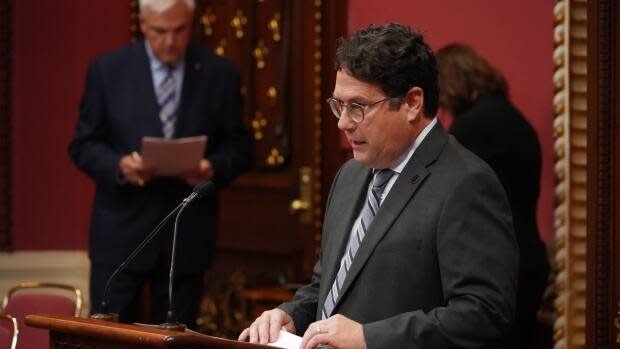
Environment minister
Benoit Charette stays on as environment minister. He was first elected in the riding of Deux-Montagnes in 2008 under the Parti Québécois banner and joined the CAQ before being re-elected in 2014 and 2018. As well as being the environment minister, he was appointed minister responsible for combating racism in 2021. That job now goes to someone else. Charette will be the minister responsible for the Laurentians.
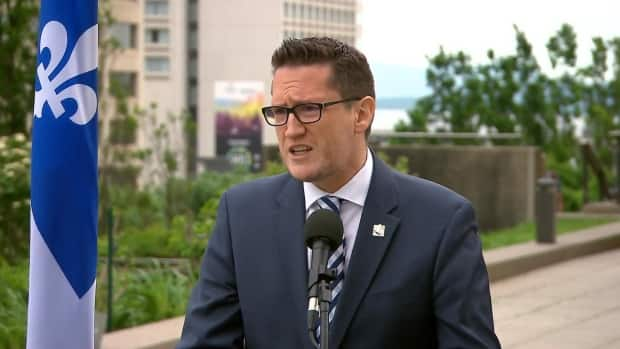
Health minister
Christian Dubé, first elected in 2018 in the riding of La Prairie, will stay on as minister of health but will no longer be the minister of social services. He was given the health portfolio in June 2020 in a cabinet shuffle. Before entering politics, Dubé was the executive director of the Caisse de dépôt et de placement du Québec from 2014 to 2018 and sat on the board of directors of Quebecor.
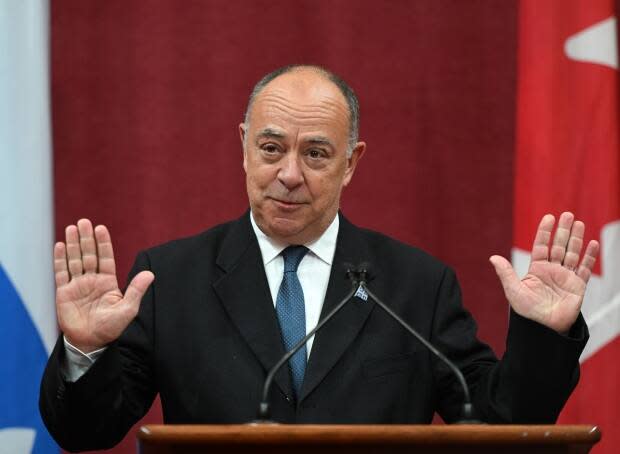
Finance minister and minister responsible for relations with English-speaking Quebecers
Eric Girard stays on as finance minister. Girard was first elected under the CAQ banner in 2018 for the riding of Groulx. and has been the CAQ's finance minister ever since. He has a master's degree in economics from the Université du Québec à Montréal. Before becoming a provincial politician, the 56-year-old father of two was a senior manager with the National Bank of Canada for more than 20 years.
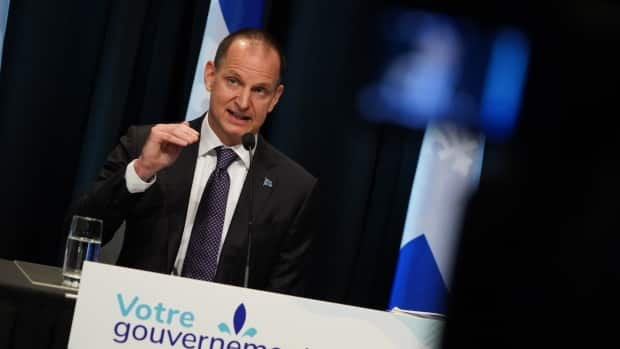
Minister of economy, innovation and energy, minister responsible for regional economic development and minister responsible for Montreal
Pierre Fitzgibbon, first elected in 2018, is expanding his economic role in the Legault government and will now be in charge of Hydro-Québec and represent Montreal at the cabinet table. He was the minister of economy and innovation and the minister responsible for regional economic development in the past. The 67-year-old represents the Terrebonne riding. Before getting elected, he was an associate director with Walter Capital Partners.
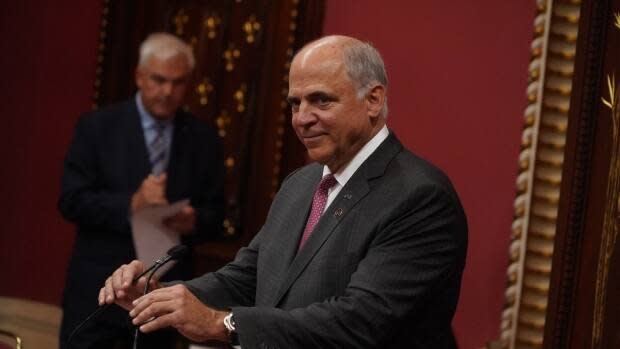
Transport minister
Geneviève Guilbault, representing the Louis-Hébert riding, gets a new portfolio with transport although she retains the job of deputy premier. Guilbault was the minister of public security in the last government. Before the mother of two was elected to the National Assembly in a byelection in 2017, she was a communications and media relations officer for the Quebec coroner's office.
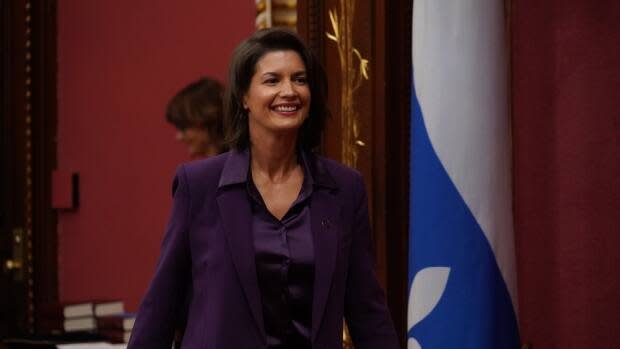
Minister of higher education
Pascale Déry is one of the new faces in cabinet, taking on higher education, which includes universities and CEGEPs. She was first elected this month in the riding of Repentigny. She became the Air Canada media relations director for Quebec and Eastern Canada in 2020, five years after running in the federal election for the Conservative Party of Canada. She also worked as a journalist with TVA and LCN for 15 years. She holds a master's degree in political science and international law from UQAM.
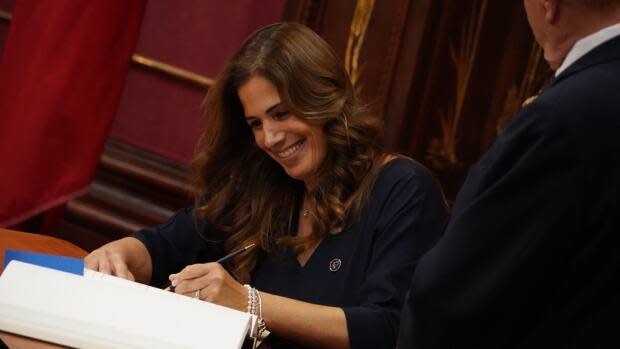
Justice minister
Simon Jolin-Barrette will have just one job in this new cabinet: justice. At just 35 years old he has held a range of ministerial positions, including justice minister, minister responsible for laicity and parliamentary reform, minister of the French language and minister responsible for the Montérégie region. Representing the riding of Borduas, he was first elected in 2014. Back then, he was working as a lawyer for the city of Montreal.
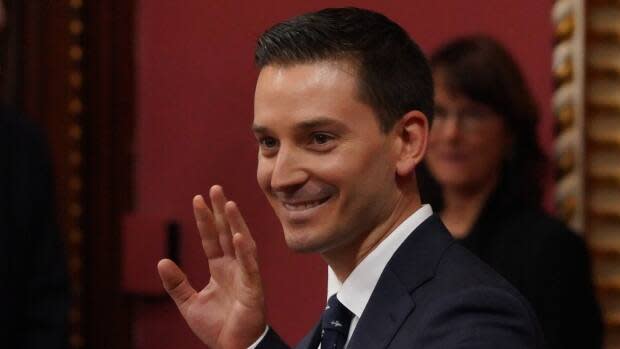
Minister of the French language, relations with Canada and secularism
Jean-François Roberge switches portfolios in this cabinet. He takes on the key roles of protecting the French language and dealing with Ottawa. He will also handle the thorny issue of secularism. In addition, he will be responsible for Canadian Francophonie, democratic institutions as well as access to information, privacy and protection of personal information. Roberge was first elected in the riding of Chambly under the CAQ banner in 2014. He served as the education minister after being re-elected in 2018. He worked as an elementary school teacher for 17 years before entering politics.
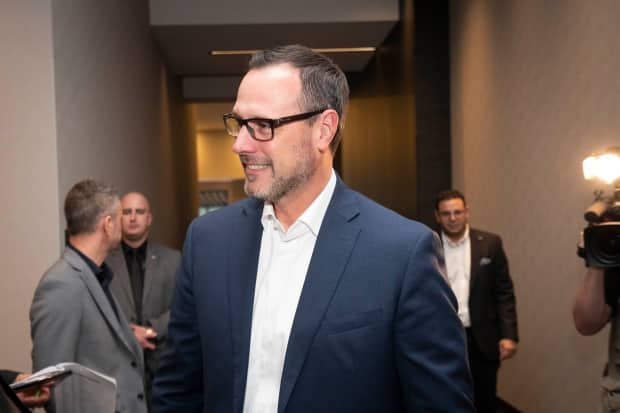
Minister responsible for the fight against racism
Christopher Skeete gets his first cabinet post as the minister responsible for the fight against racism. He was first elected in 2018 in the riding of Sainte-Rose and was named the parliamentary secretary to Legault for relations with the anglophone community. The 43-year-old has a master's degree in business administration from the Université du Québec à Montréal. Back in 2008, he started CasMedic, a company that specializes in assisting pharmacies and other health services with organizing patient care.
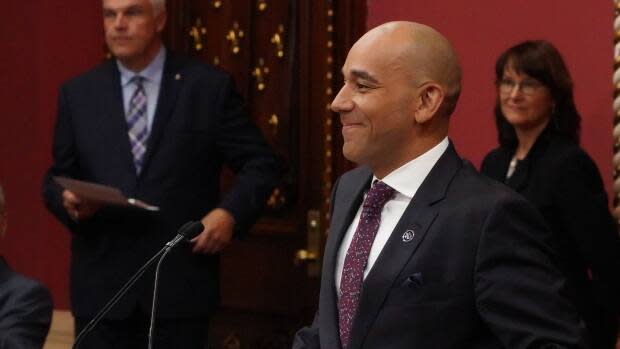
Minister of immigration, francisation and integration
Christine Fréchette is a new face, elected this year to represent the riding Sanguinet. She will take on the challenging portfolio of immigration, francisation and integration. The CAQ describes her as a specialist in economic development and government relations. Most recently, she was on the board of directors for the Olympic Park in Montreal and she has a master's degree in international relations from Université Laval. According to the CAQ, she stands out for her strategic and visionary thinking.
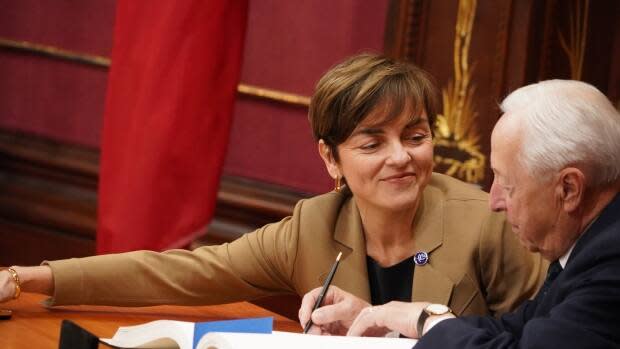
Employment minister
Kateri Champagne Jourdain becomes the first Indigenous cabinet minister in Quebec and as employment minister, will deal with the province's labour shortages. She was just elected in the riding of Duplessis. Originally from the community of Uashat Mak Mani-Utenam, next to Sept-Îles, she worked as a communication officer for its band council. In 2017, she became the executive director of Immobilière Montagnaise SEC. In 2019, she became the first Innu to join the Desjardins Group board of directors. She holds a bachelor's degree in social community from the Université du Québec à Trois- Trois-Rivières. She also becomes minister responsible for the North Shore region.
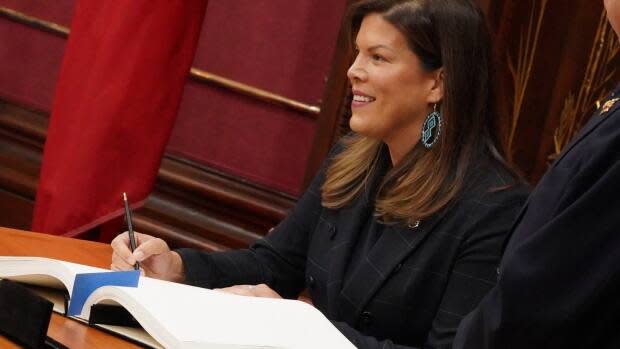
Minister responsible for Indigenous affairs
Ian Lafrenière keeps the portfolio of Indigenous affairs. Lafrenière was first elected in 2018 to represent the Vachon riding. He was an inspector and head of communications with the Montreal police service before running for office. Among his roles as an MNA, he has served as chair of the National Assembly delegation for relations with Haïti. Before his work in the police, he served in the military. A father of two, he was awarded the Queen's Jubilee Medal for his community involvement.
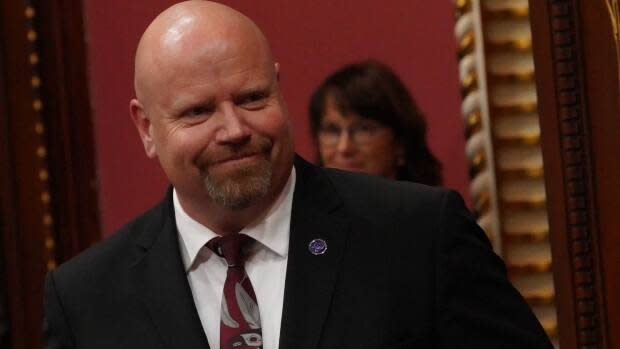
Public security minister
François Bonnardel, from the Granby riding, is a veteran taking on a new job. Bonnardel served as transport minister before. He will now take on public security but will remain the minister responsible for the Estrie region. He was first elected in 2007 under the Action Démocratique du Québec party banner. His original riding of Shefford was split and his party merged with the CAQ before the 2012 election. The 54-year-old was born in Montreal and studied at the Royal Military College in Saint-Jean, Que., and the Cégep du Vieux Montréal.
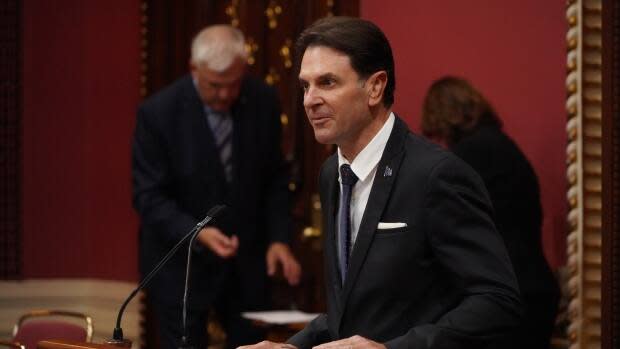
Treasury Board president
Sonia LeBel returns as Treasury Board president. The 54-year-old was first elected in 2018 for the CAQ, representing the Champlain riding. She has served as justice minister in the past but most recently was the minister responsible for Canadian relations and the Canadian Francophonie as well as minister responsible for democratic institutions and electoral reform. A lawyer since 1991, she was the chief prosecutor during the Charbonneau Commission.
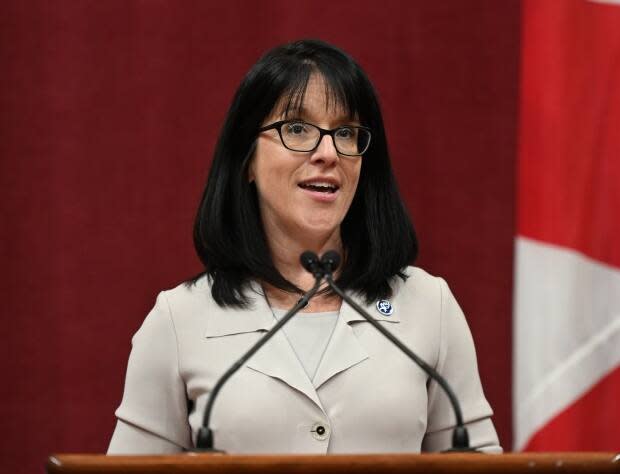
Minister Responsible for Health and Seniors
Sonia Bélanger is another new face to provincial politics but a familiar one to people who watched Dr. Mylène Drouin's public health news conferences in Montreal during the epidemic. She was elected this year to represent the Prévost riding at the National Assembly. Before jumping into politics, she was the president and CEO of the CIUSSS du Centre-Sud-de-l'Île-de-Montréal since 2015. The CAQ says Bélanger, a nurse by training, has a solid understanding of the province's health network.
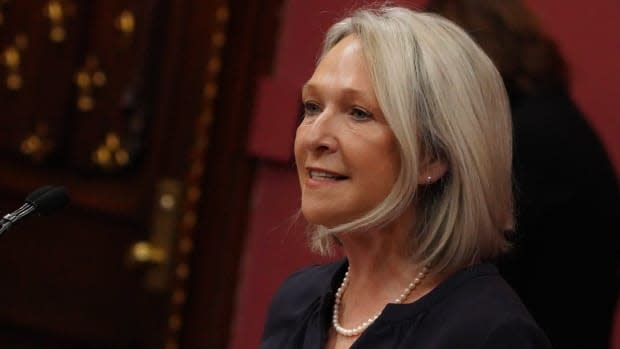
Labour minister
Jean Boulet returns to cabinet but with fewer responsibilities. Boulet, representing the Trois-Rivières riding, previously served as the minister of labour, employment and social solidarity. He has also been the minister of immigration, francization and integration and the minister responsible for the Mauricie region. He was first elected with the CAQ in 2018.
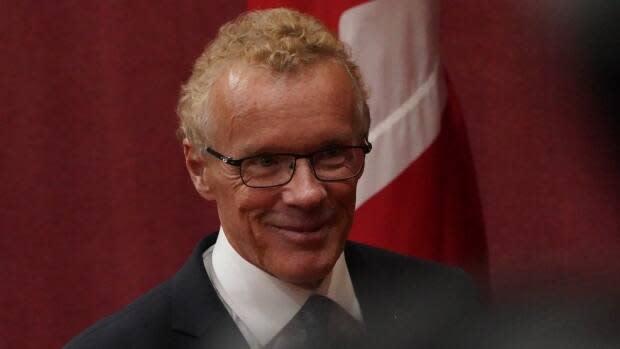
Minister responsible for housing
France-Élaine Duranceau, 47, is new to politics and becomes the minister responsible for housing. Duranceau represents the riding of Bertrand, north of Montreal. The CAQ says she is an expert in real estate, accounting and taxation.
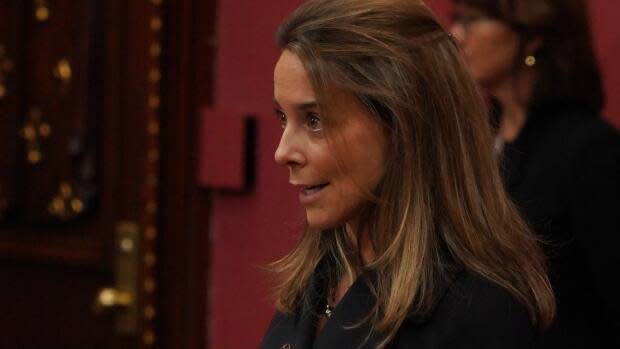
Other ministers sworn in
Minister of social services: Lionel Carmant. First elected in 2018 in the riding of Taillon, the 58-year-old has already served as the junior health and social services minister and previously worked as a neuropediatrician specializing in epilepsy.
Minister of municipal affairs: Andrée Laforest. Retaining the position she held since 2018, Laforest remains responsible for the Saguenay-Lac-Saint-Jean region.
Minister of culture and communications and minister responsible for youth: Mathieu Lacombe. Lacombe has held the role of family minister for the past four years. He will retain his position as minister responsible for the Outaouais region, as well as become the minister responsible for the Abitibi-Témiscamingue region.
Minister of international relations and the Francophonie and minister responsible for the status of women: Martine Biron. A journalist for 35 years, working for Radio-Canada from 1991 to 2022, this is Biron's first time in office, representing the Chutes-de-la-Chaudière riding in the Quebec City region.
Tourism minister: Caroline Proulx. First elected in 2018 in the riding of Berthier, Proulx holds her post as tourism minister as well as minister responsible for the Lanaudière region.
Minister of natural resources and forests: Maïté Blanchette Vézina. Elected this year in the riding of Rimouski, the CAQ says Vézina has developed strong ties in the community with citizens, community groups and businesspeople.
Minister of cybersecurity and digital affairs: Éric Caire. Caire has previously served as Quebec's minister for government digital transformation. The former entrepreneur and CEGEP teacher has been with the CAQ since 2012.
Minister of sports and leisure: Isabelle Charest. Representing the Brome-Missisquoi riding, the 51-year-old was an Olympic medallist in short track speed skating. First elected with the CAQ in 2018, she has served as the junior education minister and the minister responsible for the status of women.
Minister responsible for infrastructure: Jonatan Julien. Former minister of energy and natural resources, Julien represents the Charlesbourg riding as a member of the CAQ. He also becomes minister responsible for the Capitale-Nationale region.
Minister responsible for social solidarity and community action: Chantal Rouleau. The 63-year-old was first elected in 2018 in the riding of Pointes-aux-Trembles. She has already served as junior transport minister and the minister responsible for Montreal.


